Marketing to iOS developers in 2023: It’s an odyssee
Scaling our analytics solution to build a sustainable company is one of our biggest challenges.

Daniel started TelemetryDeck because he wanted to build an excellent service for developers. I joined him because I believe in bringing more privacy to the world. Neither of us imagined spending most of our days on marketing when we first planned on building a company. However, like every other founder out there, we eventually realized that our product wasn't going viral. We had to actively promote ourselves. It's bananas, right?
I am sharing our experiences in this field because our hearts are with the founders who want to grow their businesses. We learn from others, and we hope that some of you will benefit from our experience. For those of you who don't know TelemetryDeck yet, we are a B2B SaaS company that currently focuses on B2D (business-to-developer) marketing.
What happened so far
In 2020, when Daniel began working on TelemetryDeck, he provided regular updates on his progress via Twitter. As an active member of the iOS developer community for many years, his posts gained significant attention from our target audience. When he released a beta on ProductHunt, TelemetryDeck suddenly had a few hundred users.
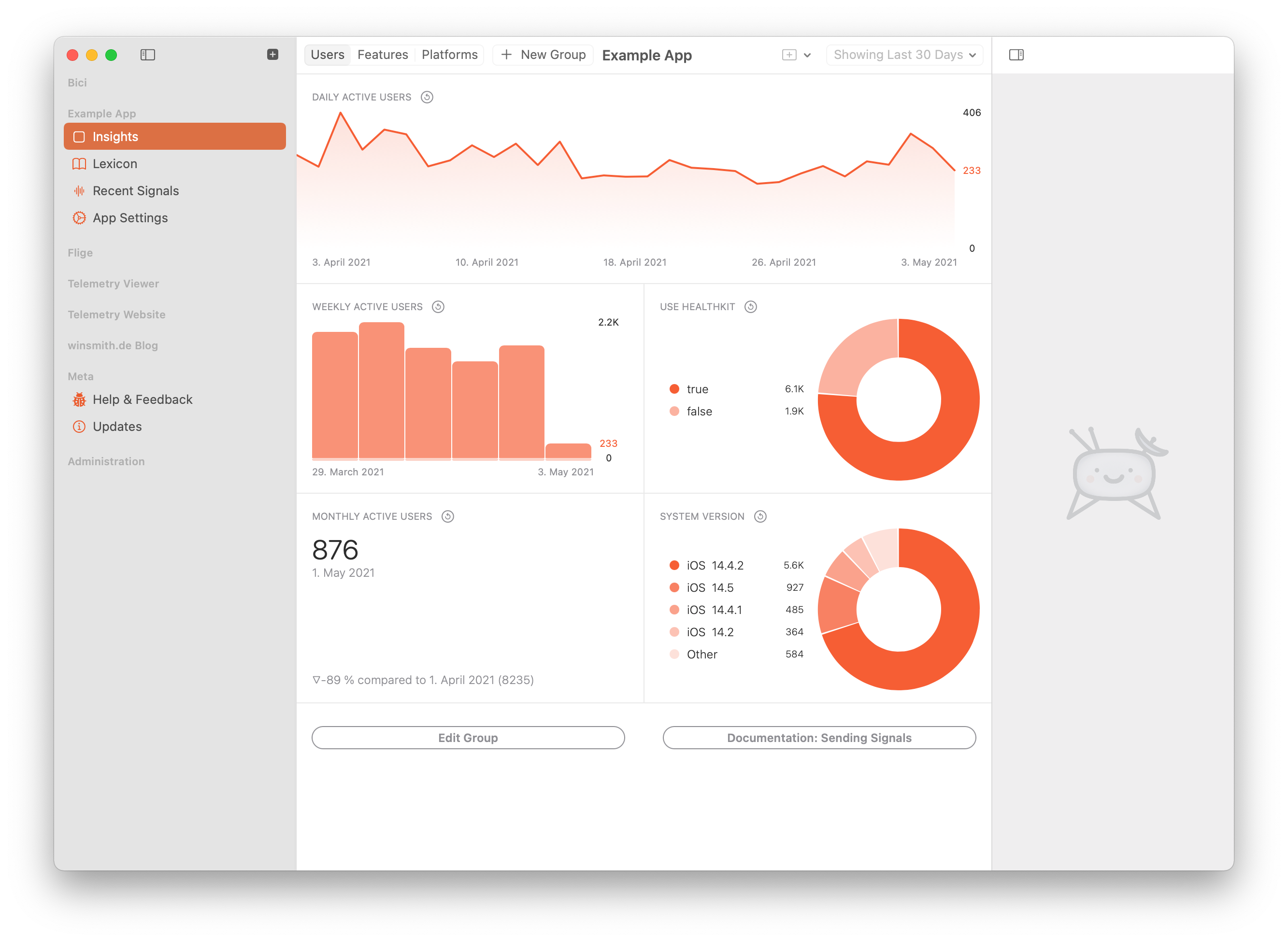
Old friend Twitter
TelemetryDeck and the Twitter iOS developer community were a match made in heaven. We gained a lot of traction on Twitter and put a lot of time and effort into building a community there. We even tried Twitter Ads, but with little to no success. The best part was that whenever someone asked for an app analytics tool, one of our followers recommended TelemetryDeck.
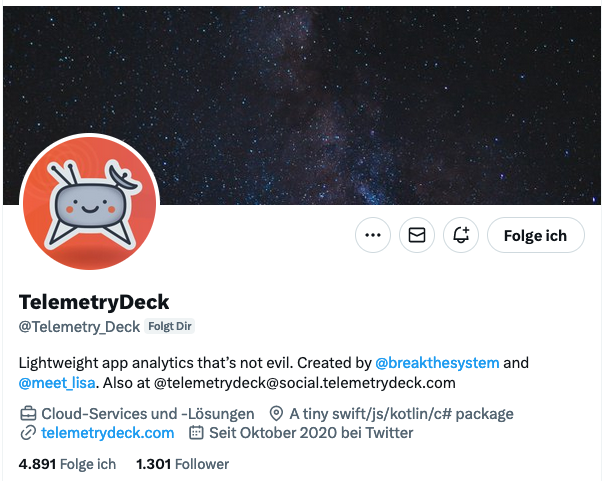
Twitter faced some… PR problems when the new CEO took over, causing many users to become annoyed and leave the platform. We felt the same and stopped our advertising activities and barely posted on our personal accounts. For quite a while, it seemed that Mastodon became the new place to be instead.
Hello Mastodon
Daniel set up our own instance on Mastodon, and everyone on our team created accounts. The iOS developer community built a network quickly (check out iosdev.space and indieapps.space), and everything seems to be running smoothly.

However, while we support decentralized and ad-free platforms, it can be challenging to scale your audience without any ads or other marketing tools from a business perspective. As founders, we can only dedicate a certain amount of time each day to social media.
Nevertheless, we are proud members of the app developer community on Mastodon and are very happy with our interaction rates. To give an example: In the past 90 days, we received 104 website visitors from 1,298 followers on TelemetryDeck’s Twitter profile. In the same time period, we received 178 website visitors from 583 Mastodon followers. Please note that these numbers only include visitors who arrived via tracking links published on our own accounts.
Bye Reddit
A good part of the iOS developer community is on Reddit. Or should I say was? When Twitter was no longer the coolest place to be, the iOS developer Subreddits got more crowded. When we saw the potential of that network, we also started advertising here. With a few hundred dollars, we got some subscriptions and found out that ads with emojis convert better than text ads. Mind blown. (🤯)
In the early summer, Reddit also got a PR problem – and it was actually caused by one of our earliest customers. When Reddit announced their new pricing model for API calls, Apollos business case was at risk. The developer of the famous Reddit app for iOS, Christian Selig, tried to negotiate with Reddit, but it didn’t help. As a protest, hundreds of Subreddits went private and Reddit lost a good portion of its content.
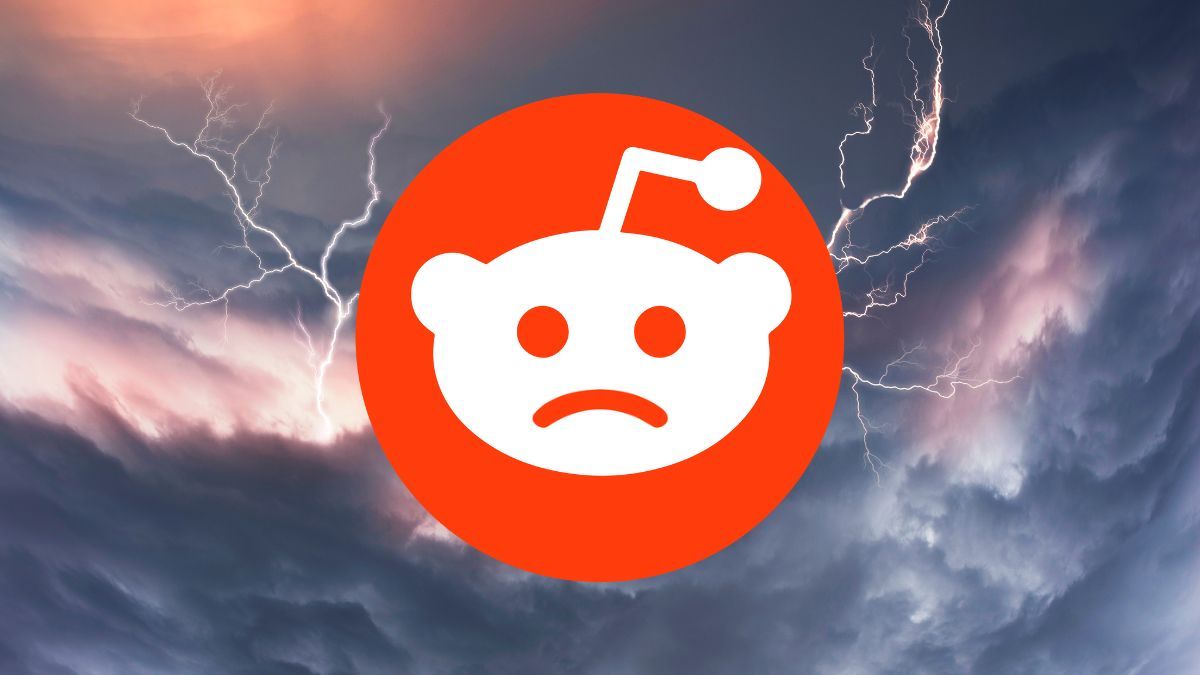
To sum things up: The iOS developer community was mad, understandably. And we lost another well-working marketing channel.
To put it differently, it seems as if every platform or network that we advertise on gets into trouble soon after and loses a bunch of users. Maybe we should consider investing a few dollars on Truth Social soon.…
Google Ads
I know it's ironic that we're building a company to fight against Google's advertisement system (among others) and then using the same system for our own marketing purposes. However, we need to advertise somewhere, and targeting the right audience through Google Ads is very convenient.
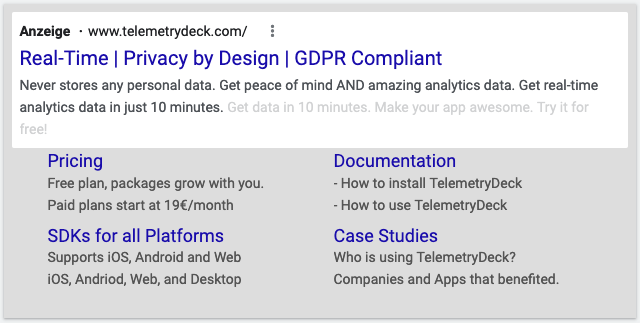
Here's how to navigate using Google Ads without violating people's privacy or sacrificing the privacy of our website visitors:
- We do not use Google Analytics or other Google tracking tools, such as Google Tag Manager or conversion tracking snippets. Instead, we use custom tracking links with UTM parameters to monitor the success of different ads and campaigns. Although we lose some information along the way, we believe it is worth it.
- We do not use any retargeting tools because we do not want to "follow" our target group across the internet, and we do not want to upload our customer list to Google Ads.
However, even with that strategy, starting Google Ads proved to be difficult. After just a few days, our campaigns were blocked because Google claimed that we were sending users to a "manipulated website" (which was not the case). It took us several weeks to get this blocker removed. Daniel delved deeply into the problem and was finally able to have a conversation with a real human at Google. He deserves an award for resolving that issue!
Currently, we are beginning to optimize our campaigns and hopefully, we will see some results in the near future. It’s really cool to see that you CAN use TelemetryDeck to optimize Google Ads and get all the data you need to improve your campaigns without capturing personally identifiable information. Maybe we’ll even do a few A/B tests soon!
Newsletters, Blogs, Podcasts, and such
One marketing channel we would love to expand is the media created by community members. Podcasts have a long tradition in the iOS developer community, and there are big newsletters and blogs that offer media collaborations. Whenever we had a little extra money, we worked with some of them.
- Hacking with Swift is the first location that pops up when you google any Swift or SwiftUI question. Its creator Paul Hudson is a fantastic steward of the community and amazing human being. We bought an ad on there for a week and had very good results.
- We are currently sponsoring the Swift Package Index, the place to go when you’re looking to extend your app with any third-party code. It gives us a steady stream of exposure and visitors.
- Waiting for Review is a podcast between Daniel and his buddy Dave Wood from New Zealand. They talk about building small and medium size apps, both from a technical and a marketing perspective.
- fline.dev is Cihat Gündüz’s iOS Developer blog, containing fantastic insights and code about the Swift Evolution, app localization, and tools for automatic and manual translation of apps.
LinkedIn. It’s a dirty job, but someone has to do it.
I don't want to delve too deeply into the LinkedIn topic because I don't see this channel in the context of developer marketing. My strategy: I am showing myself from the side that most supports my business goals.
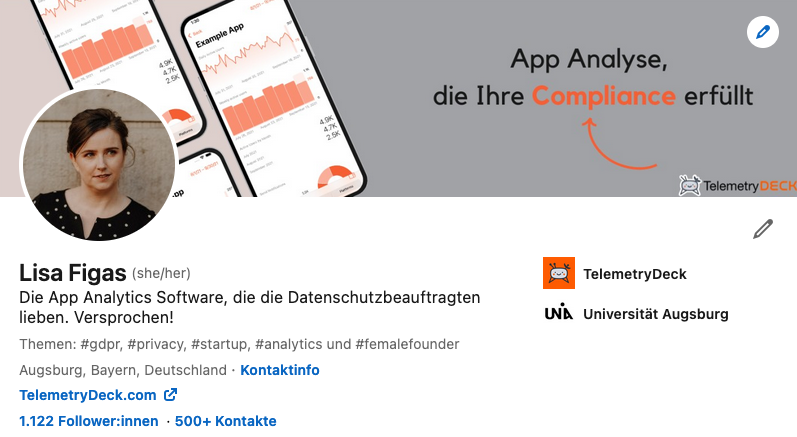
As a female founder in the tech industry, I am a rare unicorn, which generates a certain level of interest. This has led to opportunities such as talks, panel discussions, webinars, and other forums where people want to learn from my experiences. I try to accept as many invitations as possible because every media exposure increases the chance of getting even more exposure in a bigger outlet. The calculation is simple: only if people know that our company exists can they buy our product.
That's why I'm sharing my perspectives on privacy, business, and being a #mompreneur on LinkedIn. I've researched the LinkedIn algorithm and try to post as effectively as possible. Now that the summer holiday in Bavaria is over, invitations are starting to come in again, and I'm working on my speaking skills to leave a good impression whenever I have the chance to talk about TelemetryDeck. So I guess LinkedIn marketing is working well.
Conclusion
Daniel and I are in the fortunate situation of being able to distribute tasks to fit each other's preferences and abilities as we build our company. At the same time, we are constantly exchanging ideas about which platforms, networks and media support us in achieving our goals and which only take up time. It's our job as founders to constantly question ourselves and our priorities. Yes, there have been a few obstacles in our path so far, but we have always found a way to get around them. And that will also be the case in the future.

